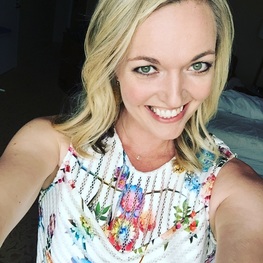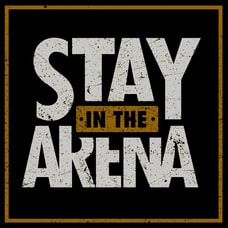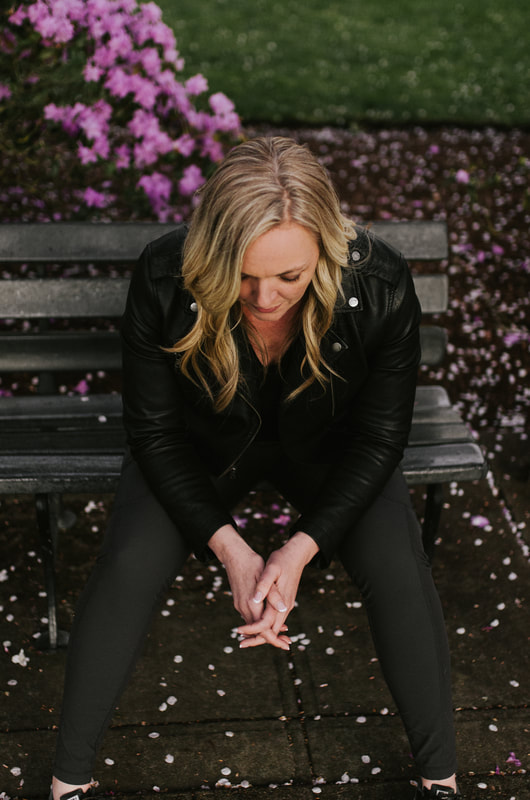 June 16-19th, 2016, hydrocephalus patients, surgeons, doctors, researchers, and industry professionals from all over the world gathered in Minneapolis, MN for the 14th National Conference on Hydrocephalus. The Hydrocephalus Association (HA) put together an inspiring and informative set of classes and content, including several new topics and fields of study. Leading up to the event, I received a lot of messages and questions about whether it would be live streamed, or if there would be a way to access the talks via the internet. This year, the HA took a big leap, and offered a way for people to attend the conference online - and they had a good number of people take advantage of this virtual attendance opportunity. If you missed out on that, there are still a handful of the sessions that you can stream from their website, for free. If you can, please take the time to send a quick message to the HA to let them know that we appreciate the effort spent on providing this online content. It is very important for them to receive the positive feedback. I told you all that I would do a “post conference review” on the blog, so I wanted to re-cap a few of the highlights of my week in Minneapolis. I wish I could write down every experience for you, and summarize every single class/session. I had an amazing time, and made so many great connections with other patients and participants. Going into the conference, I knew that there would be a lot of people there that knew who I was, and knew my story because of my blogging. However, I didn’t expect that it would be so emotional meeting these people, especially parents of young children with hydrocephalus. Seeing these parents (and kids) in person was a good reminder of why I am doing this, and why the choice to put my life on a public stage is worth the vulnerability and pain. The mutual support and inspiration that we can bring to each other through simple connection and words of encouragement is invaluable when your life is continually turned upside down by hydrocephalus. The week was filled with tearful hugs and lots of photo opportunities. My blogging started on social media (Instagram), and at the conference I had the opportunity to meet with a couple of people who I’ve communicated with regularly for several years - Trine from Denmark, and Erin from Canada. It was incredible to have these face to face encounters after supporting each other from afar for so long… a perfect example of how the internet has incredible power to connect people. The conference started with a breakout session of Community Connections - which is where patients and family members are grouped by age and family relation, so they can connect with other attendees who are in a similar situation. I attended the group session for Adults Diagnosed in Young & Middle Age, where each person in a circle of 12-15 people shared their different circumstances and struggles, but found comfort in the common thread that weaves us all together. It was a great way to start the conference week, especially for first timers. Taurean Nixon, cornerback for the Super Bowl champion Denver Broncos, was the inspirational keynote speaker at the conference. Taurean has a younger brother who has hydrocephalus, who he is very close to. His story and drive to succeed in life to honor his little brother’s battle, was touching and inspiring. His road on and off the football field has been filled with ups and downs and incredible challenge, but his attitude is the true personification of relentless pursuit. Since I have siblings with physical and mental challenges as well, so much of what he had to say about family really resonated with me, and I am so glad we had the chance to meet. Taurean Nixon is the real deal, and has the capability of changing so many lives with his kindness and desire to reach out to people who are suffering. On Friday, I participated in a panel discussion on the transition from youth into adulthood, as it pertains to medical care and life in general. Dr. Michael Williams of the University of Washington moderated the discussion, which covered everything from finding an adult neurosurgeon after years of pediatric care, to making life/career plans, and communicating with doctors, parents and caretakers. The discussion was very well received, and I was very proud of our whole panel, which included a parent of a hydro patient in college, a high school student, a student recently graduated from high school, and a college student. (For more information on this topic, see my previous blog post on this subject) I was really encouraged by two things at this year’s conference. First, I felt like there was a greater focus on integrative care for headaches and chronic pain, with a class that presented alternative methods for treating pain, and several sessions that touched on the mental/emotional aspect of pain and chronic illness. In the past few years, my husband and I have taken a multi-disciplinary approach to my care, and believe it’s been a big part of my success. The class on alternative methods for treating chronic headache, taught by Scott Schwantes, MD. included one of the best explanations of chronic pain that I have ever seen or heard. Dr. Schwantes showed a graphic depicting the pattern of chronic pain, that includes the trauma and the resulting cycle of pain that is fed by many factors, and creates it’s own patterns within the nervous system. It’s something I have experienced myself, and I found it to be very interesting. The second thing that was inspiring and encouraging to me was the new research on shunt failure that is being done in the United States. I had the pleasure of meeting and getting to know Dr. Carolyn Harris, PhD. from Wayne State University, who is doing a fascinating study on why shunts occlude. Seeing the slides she had with the different types of cells attaching to the shunt valves and tubing, gave a new perspective and reality to the fact that there are still so many aspects of hydrocephalus that are unknown and misunderstood. Until we have the information we need on what is happening, there will remain a lack of new treatments and solutions to the same issues that continue to plague us as patients, causing repeated surgeries. You can help! Dr. Harris is collecting shunts (all parts) that are removed from patients, for her study. She needs as many shunt parts as she can get, to expand her research. If you are going to have a surgery, and you think your neurosurgeon would be willing to save the parts for her, please contact her at [email protected] to get instructions on how to contribute. One of my favorite parts of the conference is always the Dinner Dance & Talent Show that happens on Saturday night. My heart swells with pride, as kids of all ages get up to dance, sing, and perform in front of a loving and supportive audience. It’s truly beautiful to see them smiling and laughing, feeling comfortable in their own skin, safely surrounded by others who understand their battle. On Sunday, we wrapped things up with an intergenerational panel discussion entitled “A Patients Guide to Thriving”. Once again, I was honored to be asked to speak on my experiences. Especially since I was only about three weeks post-op, sharing my story brought up how blessed I am to have the support that I receive from my husband, family, and friends, as well as my medical team. As I answered the questions and looked out into the audience, I encouraged my fellow attendees to look around at the people who stand in battle with them every day, and to recognize the sacrifice and commitment that those people have made to stay in the trenches beside them. This inner circle of people in my life are the reason I am able to thrive. Whether I am struggling through a shunt failure and feel like I want to quit, or I’m flying through a surgery and making it look easy, I thrive because they have made me physically strong and emotionally safe. As my life continues to change, and my journey has become so public, I cherish this security, and will do whatever is necessary to protect these bonds. These are the people who see the real pain, who pull me through the difficult moments that aren’t depicted on social media, and who hold me in the dark. But most of all, these are the faithful souls who are experiencing this life with me - who feel a pain of their own, physically and mentally, every time we go through another chapter. And for that commitment, I owe my life. I hope to see you at the next National Conference on Hydrocephalus, in 2018. Be well, and stay in the arena. Am
4 Comments
Duncan
7/4/2016 01:08:50 am
Good to read that some NSG's are concerned about head pain I wish mine was, or I wish I was able to find one that was. It is currently 2:00am I can not sleep because it is storming and my head pain is high.
Reply
Amy
7/15/2016 07:19:34 pm
Duncan, I was really encouraged that they were focusing on the issue of chronic headaches and looking for alternative methods for treating pain. It's always so complex, and the reasons for headache pain can be all over the board, especially for a hydrocephalus patient. I hope you are feeling better than when you sent me this comment... I have been battling headache pain as well these past couple of weeks, so I am behind on correspondence!
Reply
Liz
7/4/2016 01:36:27 pm
I haven't been since Cleveland and won't be going again until/unless they make it much more affordable. I also have some food intolerances and was basically given a small salad in place of what everyone else ate. I was absolutely ravenous after an hour. Thank God I had bought some food that I kept in my room, but honestly, it was excruciating to survive on so little food for 4 days, and of course, it cost me even more because I had to buy food I could eat. In all, I spent about $1,000, which I can't afford, so I won't be back unless that changes.
Reply
Amy
7/15/2016 07:21:40 pm
Liz,
Reply
Leave a Reply. |
AuthorMy name is Amy but friends and family call me Am. I am a lover of dogs, good whiskey, and strength training. I'm a brain surgery survivor (x31), a fiddle player, a construction designer, and a boxing enthusiast. I have six real siblings, and five fake brothers. I love deeply, and consider my close friends to be family. Archives
February 2022
Categories
All
|


 RSS Feed
RSS Feed